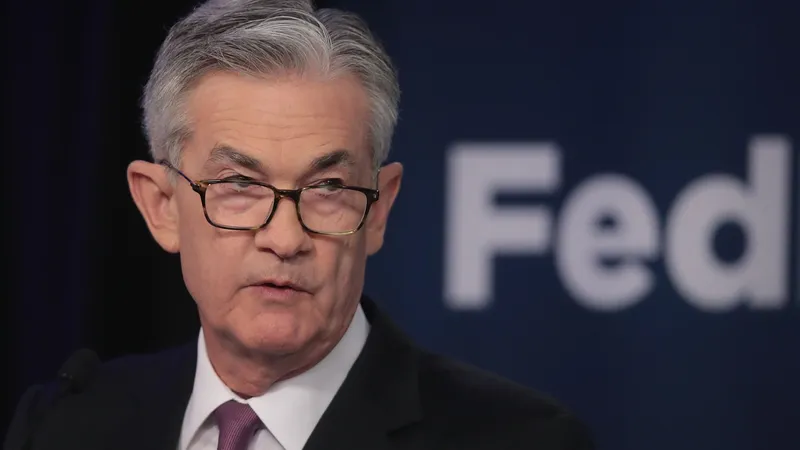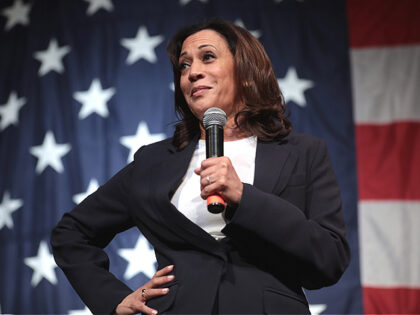from misesmedia
Fed Cuts Rate by Quarter Point, Sees ‘Balanced’ Risks to Inflation, Jobs
The reduction in borrowing costs comes just two days after Donald Trump won a second term as president, heralding likely economic policy shifts that may fuel inflation.
by Jim Tyson
CFO Dive
 Dive Insight:
Dive Insight:
The reduction in borrowing costs comes just two days after a general election in which Donald Trump won a second term as president. His return to the White House heralds likely shifts in U.S. economic policy that may fuel inflation and influence coming FOMC decisions.
Trump during the campaign promised to cut a variety of taxes, a move that would fuel economic growth and likely increase price pressures. He also pledged to impose tariffs on all imported goods by between 10% to 20%, with levies on goods from China as high as 60%.
Both policy changes may complicate efforts by the Fed to curb inflation to its 2% goal from more than 9% two years ago.
Retailers Announce ‘Inflation-Free’ Thanksgiving Dinner Deals
Some major retailers selling Thanksgiving meal bundles at cheaper prices than last year
by Christine Rousselle
FOX News
 Major retailers across the United States have announced Thanksgiving dinner bundles in an attempt to help customers save money on holiday gatherings.
Major retailers across the United States have announced Thanksgiving dinner bundles in an attempt to help customers save money on holiday gatherings.
Aldi, Walmart, Sam’s Club, BJ’s Wholesale Club and Target are among the chains that have already announced deals.
Target is offering a Thanksgiving dinner for four for $20, which the company says is $5 less than the same bundle cost last year.
Items include a frozen basted turkey from Target’s private Good & Gather brand; a five-pound bag of russet potatoes; a can of Campbell’s Condensed Cream of Mushroom soup, Del Monte cut green beans and Ocean Spray jellied cranberry sauce; a jar of Heinz roasted turkey gravy; and a six-ounce box of Stove Top stuffing mix for turkey.
Fed Cuts Rates Again as Inflation Falls and Trump Victory Shifts Economic Climate
by Christopher Rugaber
Fortune
 The Federal Reserve cut its key interest rate Thursday by a quarter-point in response to the steady decline in the once-high inflation that had angered Americans and helped drive Donald Trump’s presidential election victory this week.
The Federal Reserve cut its key interest rate Thursday by a quarter-point in response to the steady decline in the once-high inflation that had angered Americans and helped drive Donald Trump’s presidential election victory this week.
The rate cut follows a larger half-point reduction in September, and it reflects the Fed’s renewed focus on supporting the job market as well as fighting inflation, which now barely exceeds the central bank’s 2% target.
Thursday’s move reduces the Fed’s benchmark rate to about 4.6%, down from a four-decade high of 5.3% before September’s meeting. The Fed had kept its rate that high for more than a year to fight the worst inflation streak in four decades. Annual inflation has since fallen from a 9.1% peak in mid-2022 to a 3 1/2-year low of 2.4% in September.
Dem Rep. Castro: We Were Too ‘Reluctant’ to Blame Gouging for Inflation
by Ian Hanchett
Breitbart.com
 On Thursday’s “CNN News Central,” Rep. Joaquin Castro (D-TX) argued that Democrats performed poorly in the 2024 election because many people “were still feeling a hit from inflation, much of it that was driven by corporate profiteering and price gouging. And, unfortunately, as Democrats, we were reluctant to point the finger there.”
On Thursday’s “CNN News Central,” Rep. Joaquin Castro (D-TX) argued that Democrats performed poorly in the 2024 election because many people “were still feeling a hit from inflation, much of it that was driven by corporate profiteering and price gouging. And, unfortunately, as Democrats, we were reluctant to point the finger there.”
Castro said, “I think that Kamala Harris and Joe Biden did an incredible job for four years in helping our economy bounce back from a once-in-a-century pandemic. We had record job growth. We had record-low unemployment. But I also think that a lot of families — including a lot of Latino families — were still feeling a hit from inflation, much of it that was driven by corporate profiteering and price gouging. And, unfortunately, as Democrats, we were reluctant to point the finger there. And so, in the election, part of what happened is that Donald Trump and the Republicans, they ran a campaign that was based on fear and resentment, that was pointing the finger at immigrants, at migrants, they wanted every American to believe that everybody who was seeking asylum to this country was a potential serial killer.
A Guns, Not Butter World Will Mean Higher Inflation
The macro backdrop looks set to be very different to both the post-2008 and pre-2008 eras.
by John Stepek
Bloomberg.com
 A brief and depressing romp
A brief and depressing romp
As expected, the Bank of England has cut the UK’s key interest rate to 4.75%. The decision was almost unanimous — there was one hold-out, with Catherine Mann, ever the inflation hawk, opting for no cut.
The accompanying notes show that the Bank now expects inflation to peak at a higher rate than it otherwise would have, as a result of the budget.
But what’s probably more important is what comes out at the press conference, which is warming up even as today’s letter goes to press. Keep an eye on my colleagues over at the Markets Today blog for more as it comes through.
Inflation May Have Cost Kamala Harris the White House
Even though inflation has slowed, prices have remained high, and people hate high prices.
by Arthur Delaney
The Huffington Post
 Higher consumer prices may be the single biggest contributing factor to the resounding defeat of Vice President Kamala Harris by former president Donald Trump in Tuesday’s presidential election.
Higher consumer prices may be the single biggest contributing factor to the resounding defeat of Vice President Kamala Harris by former president Donald Trump in Tuesday’s presidential election.
Voters have consistently rated the economy as the most important issue in the election, and two-thirds of voters surveyed after casting their ballots said they considered the economy “not so good” or “poor.” And of the 31% of voters who told exit pollsters the economy was their top concern, 79% voted for Trump.
By most measures, the economy is doing well ? unemployment is historically low, at 4.1%, the stock market is booming, the country’s gross domestic product remains the envy of the world, and inflation has actually fallen to similar levels in Trump’s first term.
The Latest Inflation Woe: Your Fast-Food Breakfast Now Costs 53% More
Prices for the morning meal have surged over the past five years, according to a new study
by Charles Passy
Market Watch

A newly released study from the personal-finance site FinanceBuzz found that breakfast menu-item prices at 10 of the most popular fast-food chains have increased by 53% since 2019. And in some cases, the spikes are much higher: At Taco Bell and CKE Restaurants (Hardee’s and Carl’s Jr.), prices for morning fare have jumped by 72%.
Other chains have had lower increases, of course. At Subway, the hike over that five-year period is 37% and at Starbucks, it’s 32%. But even in these instances, the increases still outpace the rate of inflation since 2019, which is 23%, according to the federal Bureau of Labor Statistics.
The FinanceBuzz data looked at popular breakfast offerings, such as egg sandwiches and bagels. Coffee was not included as part of its study.
The Damage Done by Our Inflationist Regime
by Brendan Brown
Mises.org
 Economist Brendan Brown answered our questions about interest rates, the carry trade, and why the Federal Reserve won’t fix our inflationary malaise.
Economist Brendan Brown answered our questions about interest rates, the carry trade, and why the Federal Reserve won’t fix our inflationary malaise.
The Misesian (TM): Much of your work at mises.org has examined the many ways that monetary inflation creates various types of bubbles fueled by speculative narratives. They’re different with each business cycle, though. What do you see as some of the biggest bubbles out there right now?
Brendan Brown (BB): I think of bubbles as an extreme phenomenon. They are prone to develop in noncore markets under those types of severe monetary inflation where asset inflation, rather than reported inflation in goods markets, is the starkest symptom. (These episodes usually feature strong coincident nonmonetary downward influences on prices). Bubble-like qualities can also extend to some especially hot segments of core markets.
Trump Ran On Fighting Inflation, but Investors Are Betting He’ll Make it Worse
Donald Trump’s second-term policies are seen by investors as posing potential threats to the fight on inflation.
by Diccon Hyatt
Investopedia
:max_bytes(150000):strip_icc():format(webp)/GettyImages-2182548293-c77ede666a9d47ad8c732297fecd730a.jpg) President-elect Donald Trump won his second term in office Tuesday after promising to fight the inflation that has hammered household budgets since 2021—however, financial markets are betting he’ll make it worse instead.
President-elect Donald Trump won his second term in office Tuesday after promising to fight the inflation that has hammered household budgets since 2021—however, financial markets are betting he’ll make it worse instead.
Yields on 10-year Treasurys surged Wednesday in the wake of Trump’s victory, rising as high as 4.47%, their highest level since July. Treasury yields tend to be heavily influenced by investor concerns about inflation, with higher yields signaling concerns about greater inflation risks ahead. Economists widely believe several of Trump’s policy proposals—especially his tariffs on imports—could accelerate the rising cost of living.
“We expect tariffs and tax policy will be the focus for economic policy early in a second Trump administration,” David Seif, chief economist for developed markets at Nomura, wrote in a commentary. “Tariffs are likely to be inflationary and negative for growth.”
Voters Voiced Frustration Over Inflation. Some Economists Expect Trump’s Policies to Worsen It.
Expanded tariffs and mass deportations would raise prices, some experts say.
[Ed. Note: “mass deportations would raise prices”… said no previous economist EVER.]
by Max Zahn
ABC News
 Voters swept President-elect Donald Trump back into office on what appears to be a swell of discontent over the state of the U.S. economy.
Voters swept President-elect Donald Trump back into office on what appears to be a swell of discontent over the state of the U.S. economy.
More than two-thirds of voters say the economy is in bad shape, according to the preliminary results of an ABC News exit poll. Forty-five percent of voters say their own financial situation is worse now than it was four years ago, which exceeds the share who held that view in the immediate wake of the Great Recession in 2008, the poll found.
Yet despite their frustrations about the cost of living, voters elected a candidate whose economic policies are widely expected to worsen inflation and hammer household budgets, experts told ABC News.
Trump’s proposals of heightened tariffs and the mass deportation of undocumented immigrants could raise prices for everything from coffee to bananas to smartphones, experts said.
